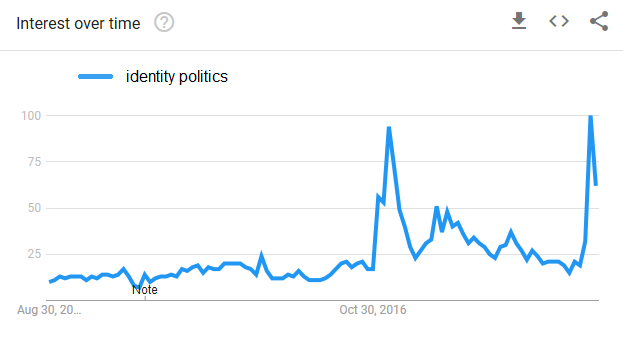Every time I see people making disparaging remarks about “identity politics”, I wonder what that means. It sounds like a meaningless buzzterm, like “political correctness”. It sounds like an attack on any minority groups that dare to politically advocate for themselves.
But where did the term originate? How did it become popular? Which minority groups is it directed at? Has its use changed over time? Here I perform an empirical investigation using Google.

Source: Google trends. This tracks the popularity of search terms over time.
As can be seen from above, the term “identity politics” has been around for a long time. I looked as far back as Google trends allows (back to 2004), and it’s still there. However, there was a big spike in popularity in November 2016–the month that Trump was elected. There’s also a broad hump around January-February 2017, and a more recent spike in August 2017. I will investigate each of these time periods by sampling from time-constrained google searches.
